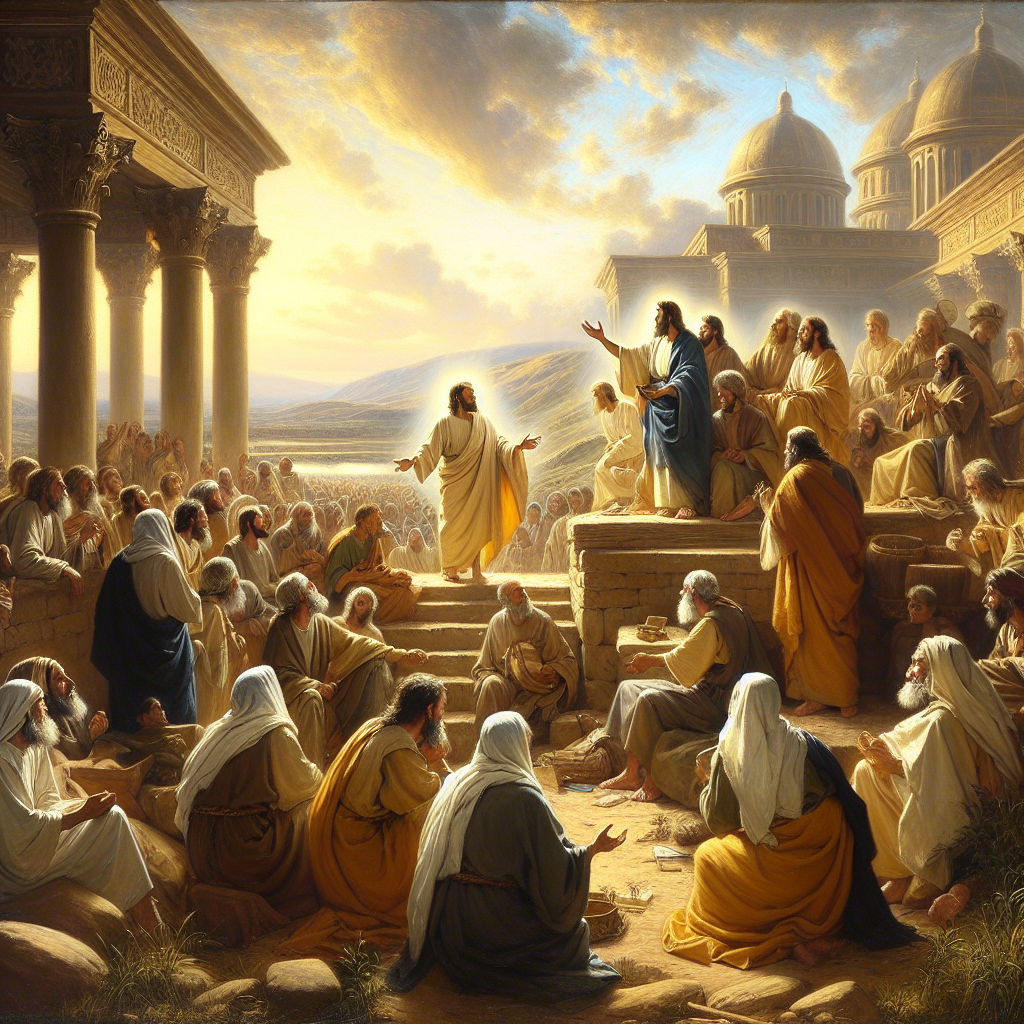Isaiah 49-52: An In-Depth Analysis of God's Plan for Salvation and Redemption

Analysis of Isaiah 49-52
Key Verses
- Isaiah 49:6 - "He says: 'It is too small a thing for you to be my servant to restore the tribes of Jacob and bring back those of Israel I have kept. I will also make you a light for the Gentiles, that my salvation may reach to the ends of the earth.'" (NIV)
This verse highlights the expanded mission of the Servant (the Messiah) to bring salvation not just to Israel but to all nations. It shows God's global redemptive plan.
- Isaiah 50:4 - "The Sovereign Lord has given me a well-instructed tongue, to know the word that sustains the weary. He wakens me morning by morning, wakens my ear to listen like one being instructed." (NIV)
This describes the Servant's intimate relationship with God and His role in bringing comfort and instruction to others.
- Isaiah 52:7 - "How beautiful on the mountains are the feet of those who bring good news, who proclaim peace, who bring good tidings, who proclaim salvation, who say to Zion, 'Your God reigns!'" (NIV)
This poetic verse celebrates the proclamation of God's salvation and reign, pointing to the gospel message.
Themes
- The Servant's Mission: These chapters focus heavily on the role and mission of the Servant of the Lord (the Messiah). He is called to restore Israel and be a light to the Gentiles, bringing salvation to all nations.
- God's Faithfulness to Israel: Despite Israel feeling forgotten (49:14), God reassures them of His unfailing love and commitment to redeem them.
- Comfort and Hope: There is a strong message of comfort for God's afflicted people and hope for future restoration and blessing.
- Universal Salvation: The scope of God's redemptive plan extends beyond Israel to include all nations.
- God's Sovereignty: These chapters emphasize God's power to accomplish His purposes and control over history.
Historical Context
- Written during the 8th century BC, likely during the reigns of Uzziah, Jotham, Ahaz, and Hezekiah in Judah.
- The threat of Assyrian invasion loomed, and the northern kingdom of Israel would fall to Assyria in 722 BC.
- These chapters look forward prophetically to the Babylonian exile and beyond.
Cultural Context
- The concept of a Suffering Servant was unique and challenging to the traditional Jewish understanding of the Messiah.
- The imagery of Zion as a forsaken wife (49:14-21) draws on cultural understandings of marriage and family.
Etymology
- "Servant" (עֶבֶד - ebed): This term, used frequently for the Messiah in these chapters, denotes one who is in a position of submission and obedience.
- "Redeemer" (גֹּאֵל - go'el): This term refers to a kinsman who buys back property or persons, pointing to God's role in redeeming His people.
Practical Application
- Trust in God's unfailing love even when circumstances seem bleak.
- Be willing to be God's instrument in bringing His message of salvation to others.
- Find comfort in God's promises during times of affliction or difficulty.
- Cultivate a listening ear to God's instruction, like the Servant in 50:4-5.
Reflection Questions
- How does the Servant's mission challenge or expand your understanding of God's plan of salvation?
- In what ways can you be a "light to the nations" in your daily life and interactions?
- How does the imagery of God's love in 49:15-16 (comparing His love to a mother's love and engraving us on His palms) impact your view of God's care for you?